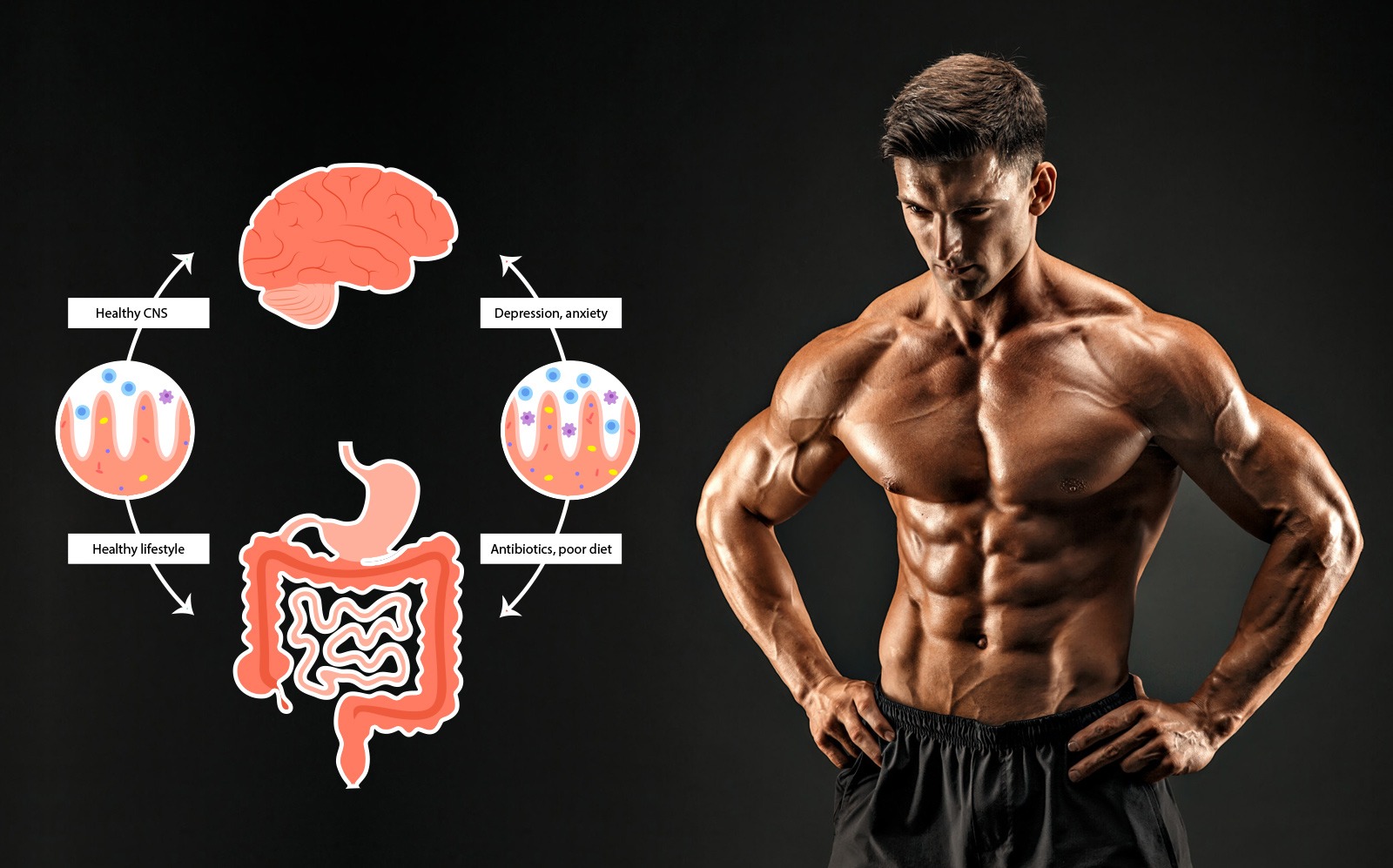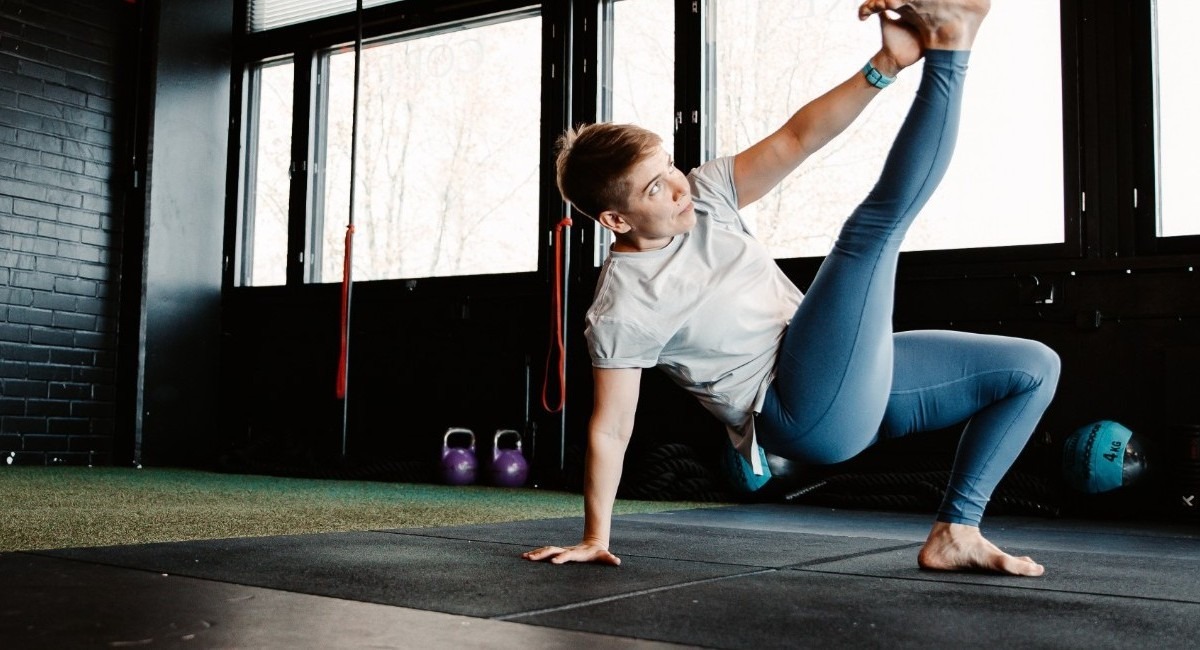
Microbiome and Muscle: Gut Health as a Hidden Fitness Tool.
Unlock the hidden potential of your muscles by understanding the gut-muscle connection, where a balanced microbiome influences nutrient absorption, hormone regulation, inflammation control, energy metabolism, and recovery. This article explores how gut health serves as a powerful, often overlooked fitness tool, offering practical strategies to optimize muscle growth, endurance, and overall physical performance through science-backed diet, lifestyle, and training insights.
💪 Fitness Guru
46 min read · 1, Oct 2025

Introduction
The human body is an extraordinary ecosystem, home to trillions of microorganisms that live symbiotically within us. Collectively, these microbes are known as the microbiome—a hidden community that plays an indispensable role in digestion, immunity, mood, and even metabolism. In recent years, science has uncovered a fascinating connection between the microbiome and physical performance, particularly muscle health. Far from being limited to nutrient absorption, gut microbes influence muscle growth, endurance, recovery, and overall fitness potential.
This article delves into the science of how gut health can serve as a hidden fitness tool, shaping athletic performance and muscle outcomes in ways most people never consider.
The Gut-Muscle Axis: An Overlooked Connection
While fitness culture emphasizes strength training, protein intake, and rest, the gut often remains overlooked. Yet, researchers have discovered a powerful gut-muscle axis, where microbial diversity and composition directly influence:
- Nutrient absorption (amino acids, vitamins, fatty acids)
- Inflammation and recovery (balancing pro- and anti-inflammatory responses)
- Energy metabolism (efficient use of glucose and fat during exercise)
- Hormone regulation (testosterone, cortisol, growth factors)
- Neuromuscular performance (through neurotransmitters like serotonin and dopamine)
In short, a healthy gut doesn't just digest food—it conditions the body for optimal muscle function and exercise outcomes.
How the Microbiome Influences Muscle
1. Nutrient Breakdown and Protein Utilization
Muscle growth hinges on protein synthesis, and the gut microbiome is a silent partner in this process. Certain bacteria like Lactobacillus and Bifidobacterium help break down dietary protein into absorbable amino acids, ensuring muscles get the building blocks they need. Additionally, microbes produce short-chain fatty acids (SCFAs) such as butyrate, acetate, and propionate, which enhance muscle energy metabolism.
2. Inflammation Control and Recovery
Exercise causes microscopic muscle damage, which triggers inflammation. While some inflammation is necessary for repair, chronic or excessive inflammation delays recovery. A balanced microbiome regulates immune signaling and reduces exercise-induced oxidative stress, leading to faster healing and less soreness.
3. Hormonal Balance and Muscle Growth
Gut microbes can influence the endocrine system. For example, they modulate levels of:
- Testosterone (vital for muscle protein synthesis)
- Cortisol (a stress hormone that can break down muscle when elevated)
- Growth hormone (stimulates tissue repair)
A dysbiotic gut (imbalanced microbiome) often leads to hormonal imbalances, affecting muscle mass and energy.
4. Energy Efficiency and Endurance
Athletes rely on the efficient use of glucose and fat. Some gut microbes enhance glycogen storage, while others improve mitochondrial function, enabling muscles to sustain effort longer. A famous study on elite athletes found that Veillonella bacteria, abundant in marathon runners, metabolize lactic acid into propionate, improving endurance capacity.
5. Brain-Muscle-Gut Link
The microbiome produces neurotransmitters such as serotonin and dopamine, which not only affect mood but also influence motor control, motivation, and the "mind-muscle connection." This explains why gut imbalances can sometimes lead to fatigue, lack of motivation, or poor athletic focus.
Gut Health and Muscle in Different Fitness Goals
1. Strength Training
For bodybuilders and powerlifters, maximizing protein absorption and minimizing inflammation is critical. A strong microbiome ensures higher amino acid uptake, better hormonal regulation, and reduced muscle breakdown after intense lifting.
2. Endurance Sports
Cyclists, runners, and swimmers benefit from microbes that process lactic acid, prevent gastrointestinal distress, and enhance fat metabolism, sustaining energy for prolonged periods.
3. Weight Loss and Lean Muscle Retention
Gut diversity is linked to better weight management. Certain microbes help regulate appetite by influencing ghrelin (hunger hormone) and leptin (satiety hormone). Maintaining microbial balance during calorie restriction prevents muscle loss.
4. Aging and Muscle Preservation
As people age, muscle loss (sarcopenia) becomes a risk. A robust microbiome supports nutrient absorption, reduces chronic inflammation, and maintains mitochondrial health, which collectively slow down muscle degeneration.
Factors That Influence Gut Health in Fitness
1. Diet Quality
- Probiotics: Yogurt, kefir, kimchi, sauerkraut introduce beneficial bacteria.
- Prebiotics: Fiber-rich foods (bananas, onions, oats) feed healthy microbes.
- Polyphenols: Found in green tea, berries, and dark chocolate, they promote microbial diversity.
- Protein Choices: Lean proteins are favorable, but excessive processed protein powders can sometimes disrupt gut balance.
2. Exercise Itself
Regular moderate exercise enhances microbial diversity, while overtraining without recovery can trigger gut permeability ("leaky gut") and inflammation.
3. Stress and Sleep
Stress hormones disrupt gut balance, while sleep deprivation reduces beneficial bacteria. Both factors affect muscle recovery.
4. Medications and Supplements
Excessive antibiotics, NSAIDs (like ibuprofen), and poor-quality supplements can harm gut lining and microbiota. On the other hand, smart supplementation with probiotics, prebiotics, and omega-3 fatty acids can be beneficial.
Practical Ways to Optimize Gut Health for Muscle
- Diversify Your Diet – Eat a wide variety of fruits, vegetables, whole grains, and lean proteins.
- Include Fermented Foods – Yogurt, kefir, kimchi, miso, and kombucha enrich beneficial microbes.
- Supplement Wisely – Use probiotics tailored for athletes and prebiotics that feed gut bacteria.
- Stay Hydrated – Adequate water supports digestion and microbial function.
- Avoid Ultra-Processed Foods – Refined sugars and additives feed harmful microbes.
- Balance Training Load – Alternate between high-intensity sessions and recovery days.
- Manage Stress – Meditation, breathwork, and adequate rest regulate the gut-brain-muscle connection.
- Prioritize Sleep – 7–9 hours of quality rest supports both microbiome and muscle repair.
The Future of Gut-Muscle Research
Sports science is beginning to explore personalized probiotics designed for athletes. One day, supplements may be customized based on an individual’s microbiome profile to maximize muscle growth, endurance, and recovery. The concept of a “fitness microbiome” could revolutionize training protocols, where gut health is monitored alongside protein intake and workout plans.
The relationship between the gut microbiome and human muscle health is one of the most fascinating discoveries of modern science, revealing that our physical strength, endurance, and recovery are influenced not just by training and diet but by trillions of microorganisms living in our intestines. The gut microbiome, a complex ecosystem of bacteria, fungi, and other microbes, has traditionally been studied for its role in digestion and immunity, but in recent years researchers have uncovered its surprising impact on the gut-muscle axis, a biological network through which gut microbes influence nutrient absorption, energy metabolism, inflammation control, hormonal balance, and even motivation to exercise. This hidden connection means that when we eat protein-rich foods, it is not just the digestive enzymes that matter but also specific microbes like Lactobacillus and Bifidobacterium, which break proteins down into absorbable amino acids essential for muscle repair and growth. Similarly, gut bacteria produce short-chain fatty acids (SCFAs) like butyrate, acetate, and propionate that provide energy to muscle cells and enhance mitochondrial efficiency, helping athletes sustain high performance levels. The microbiome also plays a pivotal role in post-exercise recovery because strenuous workouts cause microscopic tears in muscles and trigger inflammation; while some inflammation is necessary to repair tissue, too much can delay healing, and here beneficial bacteria act as regulators, dampening harmful oxidative stress and promoting a faster return to peak strength. The hormonal influence of the gut is another hidden factor: balanced microbial communities modulate testosterone, cortisol, and growth hormone, ensuring that anabolic processes like protein synthesis remain dominant over catabolic ones like muscle breakdown. Athletes also benefit from the microbiome’s effect on energy use, as studies of elite marathon runners have shown that Veillonella bacteria thrive on lactic acid produced during exercise and convert it into propionate, effectively recycling fatigue byproducts into new energy, boosting endurance and delaying exhaustion. Even the brain-muscle connection is shaped by gut microbes, since they produce neurotransmitters like serotonin and dopamine that not only affect mood but also motivation, motor coordination, and the psychological “mind-muscle connection” that athletes rely on for focus. Different fitness goals highlight different aspects of this relationship: strength trainers need efficient protein utilization and reduced inflammation, endurance athletes benefit from microbes that metabolize lactic acid and enhance fat burning, individuals focused on fat loss rely on gut bacteria that regulate appetite hormones like ghrelin and leptin, and older adults facing muscle loss (sarcopenia) depend on microbial support for nutrient absorption and chronic inflammation control. Gut health itself is shaped by lifestyle choices—diet quality is central, with probiotics from yogurt, kefir, kimchi, and sauerkraut directly introducing beneficial microbes, prebiotic fibers from foods like bananas, oats, and onions feeding them, and polyphenols from berries and green tea supporting diversity. Lean proteins promote balance, but excessive reliance on artificial supplements or processed protein powders may disrupt microbial ecosystems. Exercise itself has a bidirectional role: moderate, consistent activity promotes microbial diversity, but overtraining and insufficient recovery can increase gut permeability (leaky gut), leading to inflammation that harms both the gut and muscle performance. Beyond diet and exercise, sleep and stress are critical factors, as chronic stress hormones can destabilize gut populations while sleep deprivation reduces beneficial bacteria and hinders both microbial and muscular recovery. Medications like antibiotics and NSAIDs (common for pain management in athletes) also disrupt gut health, though careful supplementation with probiotics, prebiotics, and omega-3 fatty acids may help restore balance. Practically speaking, improving the gut-muscle axis involves diversifying the diet with whole foods, adding fermented and fiber-rich items, staying hydrated, avoiding excessive processed foods, balancing workout intensity, practicing stress management, and ensuring 7–9 hours of sleep. Looking forward, the future of performance optimization may involve personalized microbiome profiling, where athletes receive probiotics tailored to their unique microbial composition to maximize strength, endurance, and recovery, creating what scientists call a “fitness microbiome.” Overall, the evidence shows that gut microbes are not passive passengers in the digestive tract but active partners in shaping muscle outcomes, meaning that ignoring gut health may limit progress in the gym, while nurturing it can unlock hidden reserves of strength, endurance, and recovery capacity, making the microbiome one of the most important, yet often overlooked, fitness tools available to anyone who wants to push their physical potential to new heights.
The human gut microbiome, consisting of trillions of microorganisms including bacteria, fungi, and viruses, has emerged as one of the most influential yet underappreciated factors in determining muscle health, athletic performance, and overall physical fitness, revealing that strength, endurance, and recovery are not solely dependent on exercise routines, protein intake, or supplementation, but are profoundly shaped by the intricate ecosystem living within our intestines, often referred to as the gut-muscle axis, which connects microbial activity to nutrient absorption, energy metabolism, inflammation regulation, hormonal balance, and neuromuscular function, thereby providing a hidden fitness advantage that has only recently been recognized by scientists and sports nutritionists alike, and this connection is evident in multiple ways, beginning with the breakdown and assimilation of nutrients, where microbes such as Lactobacillus and Bifidobacterium play a pivotal role in converting dietary proteins into amino acids that are critical for muscle repair and hypertrophy, while also generating short-chain fatty acids like butyrate, acetate, and propionate that serve as energy substrates for muscle cells and enhance mitochondrial function, which is essential for both endurance and recovery, and beyond nutrient processing, the gut microbiome directly influences the body’s inflammatory response to exercise-induced muscle stress, because every intense training session produces microscopic muscle damage and triggers immune activation, and while acute inflammation is necessary for tissue remodeling and growth, chronic or excessive inflammation can impair recovery and performance, yet a balanced microbiome modulates immune signaling, reduces oxidative stress, and promotes anti-inflammatory pathways, ensuring faster healing and less post-exercise soreness, and the hormonal interplay orchestrated by the gut is equally critical, as microbial composition affects the production and regulation of testosterone, cortisol, growth hormone, and other endocrine factors, thereby influencing muscle protein synthesis, energy balance, stress response, and overall anabolic-catabolic equilibrium, and studies have shown that athletes with diverse gut microbiomes tend to exhibit better hormonal profiles that support sustained strength gains, whereas dysbiosis, or microbial imbalance, can lead to reduced protein utilization, elevated systemic inflammation, and impaired recovery, further impacting muscle maintenance and growth, while the gut’s role in energy efficiency is also remarkable, particularly in endurance sports, where certain microbes, such as Veillonella species identified in marathon runners, metabolize lactic acid—a byproduct of strenuous exercise—into propionate, which can be reused as an energy source, enhancing performance and delaying fatigue, and the gut-brain-muscle axis adds an additional layer, as gut microbes produce neurotransmitters including serotonin and dopamine, which influence mood, motivation, motor coordination, and the mind-muscle connection, illustrating that microbial health affects not just the biochemical but also the psychological components of fitness, and this interplay manifests differently depending on individual fitness goals: for strength-focused athletes, optimized gut function maximizes amino acid absorption and mitigates inflammation to promote hypertrophy; for endurance athletes, specific microbial populations improve glycogen storage, lactic acid metabolism, and fat oxidation, extending stamina; for those seeking lean mass retention during weight loss, gut bacteria help regulate appetite hormones like ghrelin and leptin while preventing muscle catabolism; and in aging populations, where sarcopenia poses a significant risk, a diverse and balanced microbiome supports nutrient uptake, mitigates chronic inflammation, and maintains mitochondrial health to preserve muscle function, and the factors influencing gut health are multifaceted, including diet, exercise, sleep, stress, medications, and supplementation, with diet being paramount, as fermented foods such as yogurt, kefir, kimchi, and sauerkraut introduce beneficial microbes, prebiotic fibers from fruits, vegetables, oats, and onions nourish them, and polyphenol-rich foods like berries, green tea, and dark chocolate enhance microbial diversity, while protein quality, hydration, and avoidance of ultra-processed foods further support gut integrity, and exercise itself exerts a bidirectional effect, where moderate, regular activity promotes microbial diversity and function, but overtraining without adequate rest can increase gut permeability, leading to systemic inflammation and impaired recovery, while lifestyle factors such as chronic stress and sleep deprivation negatively impact microbial balance, leading to hormonal dysregulation and slower muscle repair, and medications, particularly antibiotics and NSAIDs, can disrupt microbial populations, though targeted supplementation with probiotics, prebiotics, and omega-3 fatty acids can restore beneficial bacteria and support both gut and muscle health, and practical strategies for athletes and fitness enthusiasts to harness the gut-muscle connection include consuming a diverse and fiber-rich diet, incorporating fermented foods daily, staying adequately hydrated, limiting processed and sugary foods, balancing training intensity with recovery days, practicing stress reduction techniques such as meditation and breathwork, and maintaining consistent, restorative sleep, all of which collectively enhance microbial diversity, optimize nutrient absorption, regulate hormones, reduce inflammation, and ultimately support superior muscle performance, growth, endurance, and recovery, and looking toward the future, sports science is exploring personalized microbiome interventions, where probiotics and prebiotics are tailored to an individual’s microbial profile to maximize strength, endurance, recovery, and overall fitness potential, essentially creating a customized “fitness microbiome” that complements traditional exercise and nutrition strategies, which underscores the concept that the gut is not a passive digestive organ but an active, integral component of physical performance, making gut health a hidden yet powerful tool that can determine the effectiveness of training, the rate of muscle gain, recovery times, and even the psychological resilience required for high-level athletic performance, and as research continues to uncover more about the complex interplay between microbes, metabolism, hormones, and neuromuscular function, it becomes increasingly clear that optimizing gut health is as crucial as optimizing macronutrient intake or resistance training regimens, meaning that athletes, bodybuilders, endurance runners, and even casual fitness enthusiasts should view the microbiome as a key factor in their fitness strategy, because a well-nourished, balanced, and diverse gut ecosystem not only enhances physical outcomes but also supports long-term health, longevity, and resilience against exercise-induced stress, thereby transforming the way we understand performance enhancement, muscle maintenance, and recovery, ultimately positioning gut health as an indispensable, science-backed component of achieving peak physical fitness.
Conclusion
The microbiome is not merely a digestive aid—it is a hidden fitness tool that influences muscle growth, endurance, recovery, and even motivation. By breaking down nutrients, regulating inflammation, balancing hormones, and optimizing energy use, gut microbes significantly shape athletic outcomes.
Ignoring gut health may limit progress despite proper training and diet, while nurturing it can unlock greater strength, faster recovery, and better long-term muscle health. The path to peak performance may run as much through the gut as it does through the gym.
Q&A Section
Q1:- What is the gut-muscle axis?
Ans:- The gut-muscle axis refers to the bidirectional relationship between gut microbes and muscle health. Gut bacteria influence nutrient absorption, inflammation, energy metabolism, and hormone regulation, all of which impact muscle growth and performance.
Q2:- How does the microbiome affect muscle recovery?
Ans:- A balanced microbiome reduces inflammation and oxidative stress, allowing muscles to repair faster and minimizing soreness after workouts.
Q3:- Can probiotics really boost muscle growth?
Ans:- While probiotics don’t directly increase muscle size, they improve nutrient absorption, hormone balance, and recovery, which indirectly support muscle growth.
Q4:- Does exercise itself improve gut health?
Ans:- Yes, moderate exercise enhances microbial diversity, but overtraining without rest can harm gut integrity and lead to inflammation.
Q5:- Which foods are best for gut and muscle health together?
Ans:- Fermented foods (yogurt, kefir), fiber-rich fruits and vegetables, lean proteins, omega-3-rich foods (salmon, flaxseed), and polyphenol-rich foods (berries, green tea) support both gut and muscle health.
Similar Articles
Find more relatable content in similar Articles

The Science of Breathwork: Fitness Beyond Muscles...
Exploring how conscious contro.. Read More

How Chefs Stay Fit in High-Pressure Kitchens...
Working in a high-pressure kit.. Read More

Microbiome and Muscle: Gut Health as a Hidden Fitness Tool...
Unlock the hidden potential of.. Read More

Fitness Lessons from Wild Animals – Move Like Nature Intende..
“Discover how observing wild a.. Read More
© 2024 Copyrights by rFitness. All Rights Reserved.